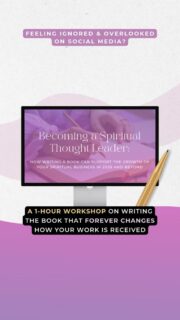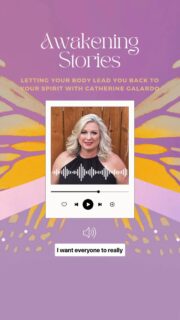Everyone knows that writing a book is a pretty big undertaking. This is exactly why published authors are so well-respected! It definitely takes a serious commitment, so how do you know if you’re ready not only to write a book but also to devote yourself to everything else that comes along with it?
Many people say they want to write a book, but for most of them, it never quite seems like the right time to actually begin. It can be easy to put it off over and over because you’re too busy and have too many other projects going on. We work with busy entrepreneurs and are them ourselves, so we get it!
However, writing a book is also an amazing way for new people to get to know you, learn about your journey, and discover what you do while also allowing them to develop a deep sense of trust in you that could lead to forming even more fruitful professional relationships down the line.
But even more importantly, writing a book allows you to take your knowledge and expertise and make it more easily accessible to the people who most need it. It’s also a way for you to improve the world for a huge amount of people at once while leaving behind a legacy that can live on beyond you!
This is deep work that brings enormous rewards in the long run compared to a social media post or a quick Youtube video, but that deep work also means you need to make a deeper commitment to showing up and slowly writing each chapter, section, and page until it’s finished, as well as putting yourself out there to promote your book once it launches.
A good time to write your book is generally whenever you are willing to make space to write your book. This may mean clearing a space of time to take on fewer clients, avoiding planning trips for a while (or, on the flipside, planning a solo writing retreat – hello potential tax write-off!), or even saying “no” more often so that you won’t have as much to do for work while you are in writing mode. These things are sort of a given…
Here are a few more key considerations to keep in mind:
- How comfortable are you with your subject?
A good phase in your career to write a nonfiction book, in particular, is when you have focused on a particular subject for at least an absolute minimum of 3 years. By this time, you will have had a good amount of real-world experience and will feel comfortable talking about your subject.
The ideas will easily flow out of your head onto the page as if you are speaking with a friend or a client who wants to know how to overcome a specific challenge or satisfy a certain curiosity they have about you or your work. You will also have proven to yourself that you truly are committed to sharing these ideas with more people and feel confident that you know what you’re talking about. - How skilled are you at running an online platform?
During the initial stages of creating your book, you will be in full-on writing mode, but very quickly after that, you will shift into full-on marketing mode! It would be ideal if you already have a website you are using for your business and have built up a consistent “channel” for staying in touch with the people who are interested in following your work so that you can attract people who may want to buy your future book.
This could be through an email newsletter, a podcast, blog, Youtube channel, or even a mix of those things. If you don’t have any of those yet, perhaps you can pick one to devote your time and energy to, posting approximately 2-4x a month for a year (or more) before the release of your book to create a consistent practice of showing up and sharing more information on your topic.
It’s not as important to have a large following on social media as it is to create the habit of showing up and a way for people to follow along with your subject on a consistent basis. That large following will develop organically over time as YOU are committed to developing your message and providing value to your future ideal readers without disappearing for huge gaps of time in between.
This doesn’t mean you are giving away everything that will be in your book for free through the content you share (because we want most of that to be new content, if possible!). Instead, through these channels, you are speaking directly to the type of person who would want to read your book and gradually helping them feel more comfortable trusting you, learning from you, and leaning on you for guidance. At the same time, you are allowing yourself to feel more comfortable and confident taking on the role of being a guide for them!
You will have time to work on growing and nurturing your online platform while your book is in production, but ideally, the foundational building blocks will already be in place before you start writing. - How willing are you to put yourself in front of new people?
Do you shy away from sharing yourself with others? Perhaps it’s scary to record yourself on video–or even just audio–and being interviewed would freak you out. If that’s the case, it’s important that you have a willingness to grow beyond this, which promoting a book will surely help you do.
The #1 most proven successful way to promote a book is through speaking engagements. Even if you don’t plan to get out on big stages, you still need to be open to putting yourself out there to bigger and bigger audiences beyond the one you have built up for yourself if you want your book to be able to succeed in its goal to be read by as many people as possible.
Being interviewed on podcasts, recording videos, and becoming a guest teacher for other online communities can be other, less intense ways of creating a similar dynamic to a speaking engagement, but it’s still important that you are willing to get out behind your computer and let yourself be seen as the ambassador for your book.
The people who will be reading your book are NOT just numbers on a sales statement. They are real people with real feelings, worries, concerns, goals, and dreams. People primarily buy from PEOPLE which means they need to be able to get to know more about you and feel your energy. Meeting you as a person will allow them to form a more personal connection with you which makes it more likely they will follow through on buying your book.
You are ready to write (and therefore market) a book when you are willing to at least prepare yourself to get out from behind your computer and shout your message to the world even if you have to do it scared at first!
In summary, it’s not just about having “time” to write your book. It’s also about having the passion and commitment to your mission and the confidence and inspiration to get out there and share it with the world as you take on the role of a true expert.
Or, at the very least, if you’re not super confident putting yourself out there yet, you are willing to break past that fear for the benefit of the souls in this world who deeply need your time, talents, and guidance in order to make life on Earth infinitely better in some way.
As an author, you are a channel of ideas and information the world needs. You are a bridge to a better world, or at least a more fascinating one, depending on your subject. These ideas and messages are specifically flowing through you for a reason. Will you be brave and answer the call to show up and commit to allowing them to come through?
For more tips like this, be sure to sign up for our newsletter here!








